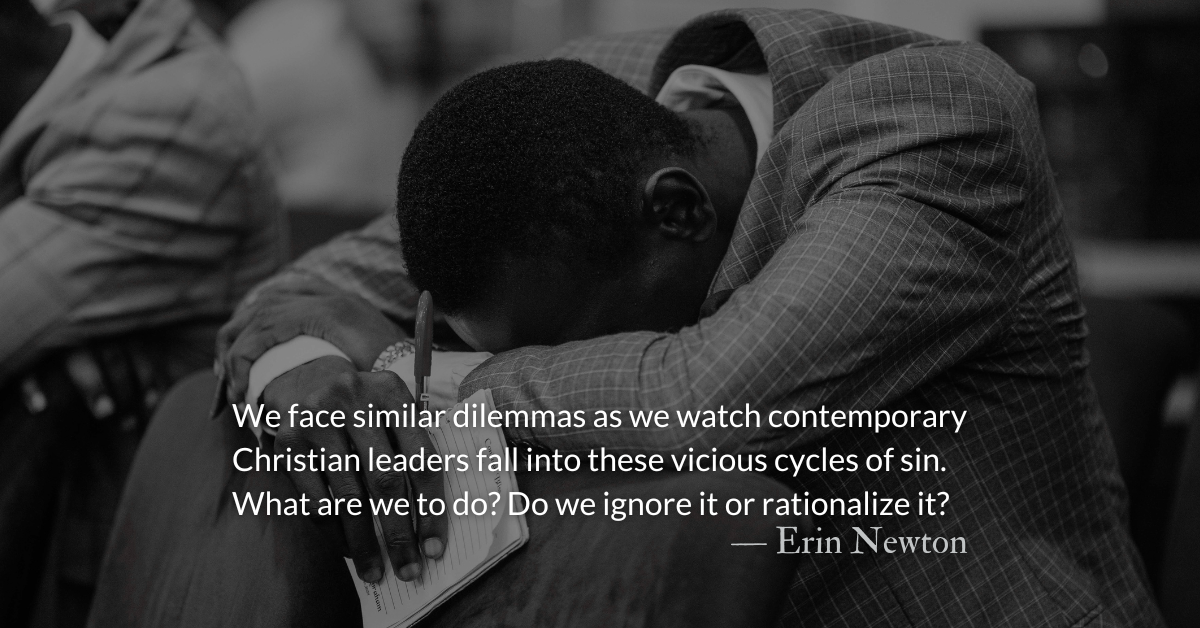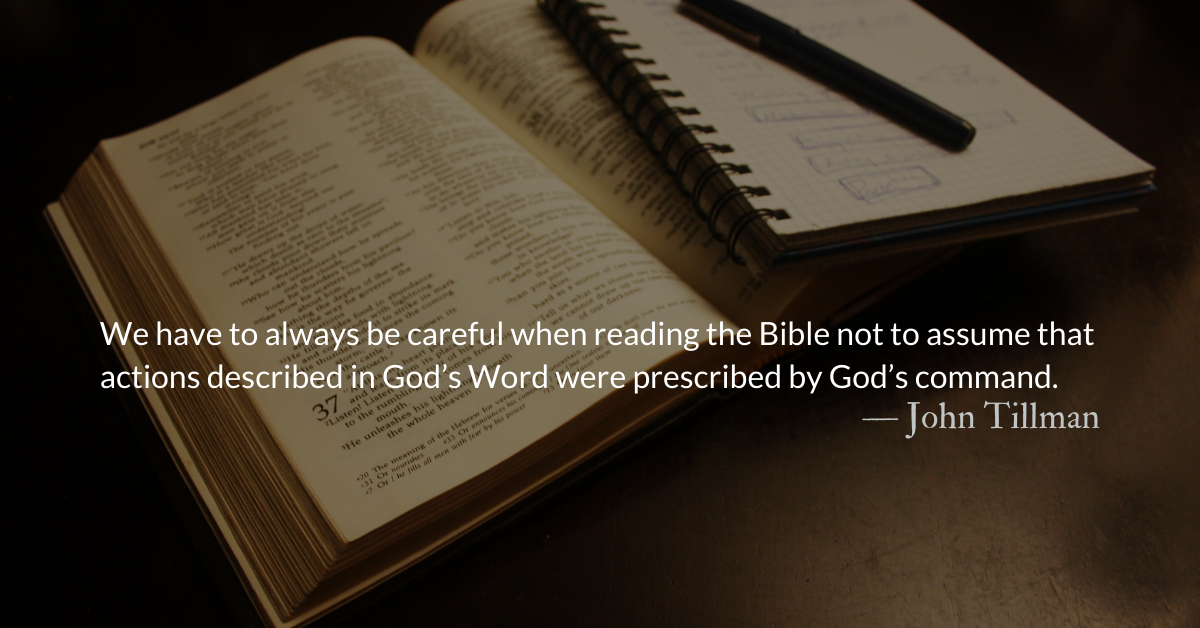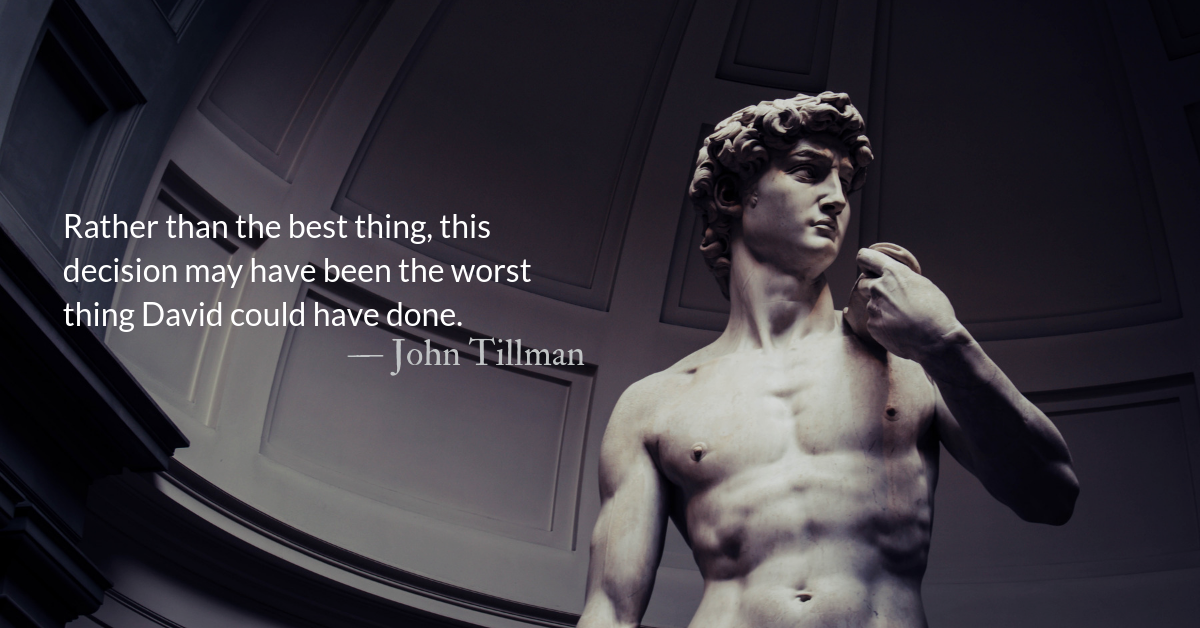Links for today’s readings:
Read: 1 Samuel 27 Listen: (1:59) Read: Revelation 7 Listen: (2:56)
Scripture Focus: 1 Samuel 27:12
12 Achish trusted David and said to himself, “He has become so obnoxious to his people, the Israelites, that he will be my servant for life.”
Reflection: David—He’s Obnoxious
By Erin Newton
Obnoxious—not a term you typically hear of David, who was a “man after God’s own heart” (1 Sam 13:14).
The backstory to David’s defection to the Philistines is Saul’s envious pursuit of him. He fled to Philistine territory to escape danger. While there, he had to gain the trust of Achish (by vowing to be his servant) and go to war against his own people in Judah.
He found a precarious balance by attacking cities that were deemed enemies of Judah (leaving no one alive) but lied to Achish that he had attacked Judean cities. Shockingly, the ruse worked. Achish trusted David while David remained safe from Saul.
The chapter repeats: “He did not leave a man or woman alive.” While typical of warfare in the Bible, the phrase could be hyperbole or narrative flourish. However, the motive for David was that he feared his ruse would be uncovered. “They might inform on us and say, ‘This is what David did’” (v. 11).
Koowon Kim (Asia Bible Commentary: 1 Samuel) notes the glaring ethical problem with this narrative: “As Christians, how can we justify what David did to the people in enemy cities, especially innocent civilians?”
In short, we can’t. David is not an ideal leader here. He did not inquire of God. He failed to trust God’s promise. He reacted rashly and to the detriment of his morality. Kim sees this behavior as a step into a dark, “vicious cycle of sin.” To save his life by his own means, not through God, he became a perpetual liar and rampant murderer.
Kim is right by saying, “This episode is humiliating for both Christians and Jews who look up to David as the paragon of messiah. So they either do not talk about it … or they rationalize it.”
But David remains, in many Christian spheres today, the role model for leaders (or even manliness). Furthermore, we face similar dilemmas as we watch contemporary Christian leaders fall into these vicious cycles of sin. They lie. They cheat. They steal. They harm. They hurt. What are we to do? Do we ignore it or rationalize it?
Better yet, we should name sin for what it is. Call it out. David was wrong. This is inexcusable. Somehow, in God’s strange working, sinners are still used in God’s plan—a fact that does not deny the reality of one’s sinful behavior.
Divine Hours Prayer: The Greeting
Splendor and honor and kingly power are your by right, O Lord our God,
For you created everything that is, and by your will they were created and have their being — A Song to the Lamb
– Divine Hours prayers from The Divine Hours: Prayers for Summer
by Phyllis Tickle
Read more: The Best We Can Do
May we never be enslaved to decisions of political practicality…compromise our souls to maintain convenient alliances.
Read more: Christ, the True Hero
We cannot live up to oaths such as Psalm 101. Neither could David. David would eventually bring corruption, rape, murder, and the ravages of civil war to the city which in this Psalm he pledges to protect.




